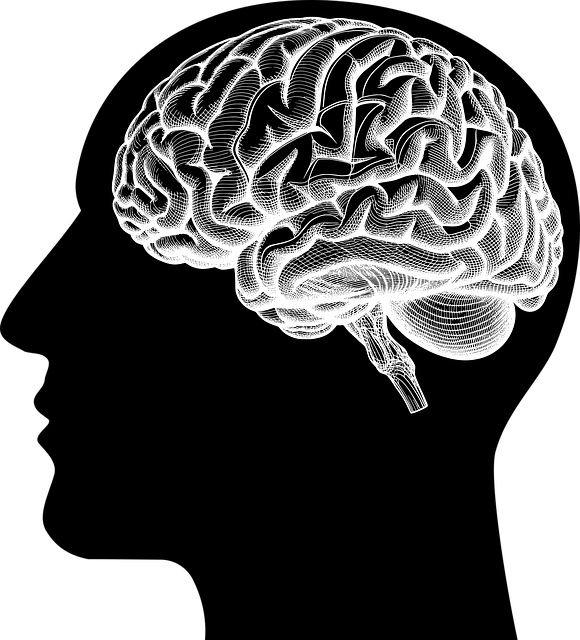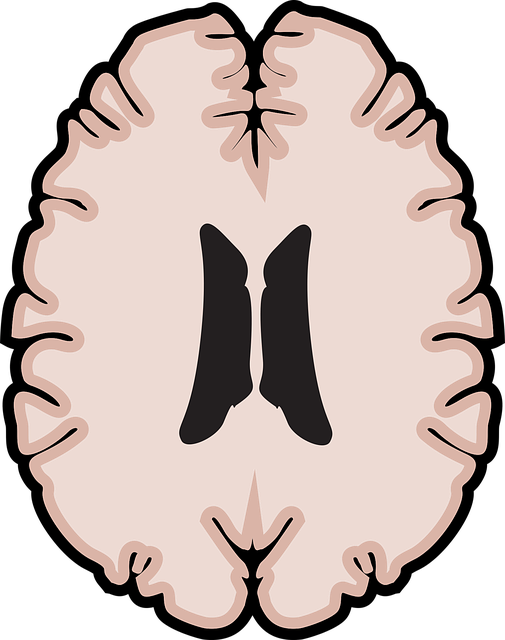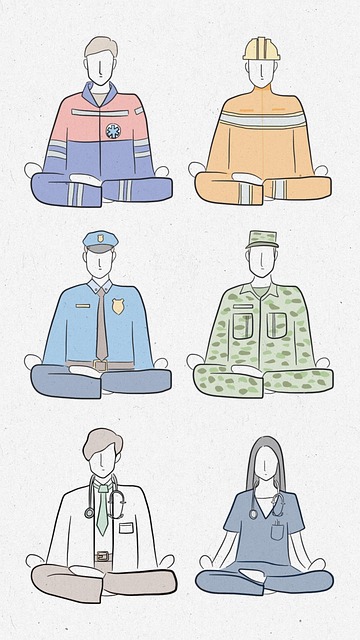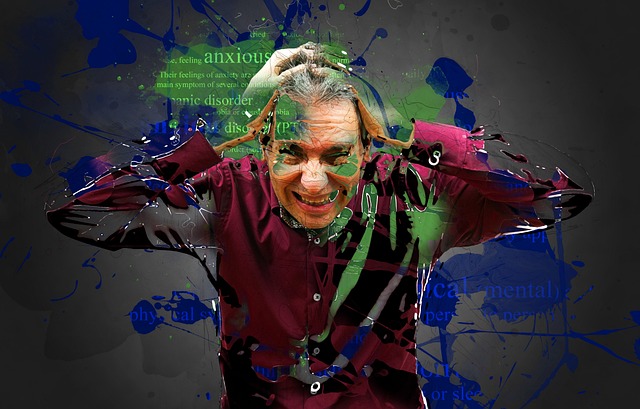The text explores the profound impact of mental illness stigma, perpetuated by media stereotypes and misconceptions, which hinder access to support like that offered by Westminster Hypnosis Therapy. It advocates for a shift through education, balanced media representation featuring diverse voices, and therapeutic approaches like hypnosis. By challenging stereotypes, Westminster Hypnosis Therapy enhances cultural competency, offers tailored stress reduction, and contributes to a growing dialogue on inclusive mental healthcare, fostering a society of compassion and understanding.
Mental illness stigma, perpetuated by media portrayals, deeply affects societal perceptions. This article explores the challenge of inaccurate representations and offers solutions. We delve into the profound impact of mental health stigma on individuals and communities, examining current media trends. Introducing Westminster Hypnosis Therapy, an innovative approach aiming to challenge stereotypes through evidence-based practices. Additionally, we discuss strategies for responsible media representation and highlight the importance of collaboration between media outlets, experts, and support groups in fostering positive change.
- Understanding Mental Illness Stigma and Its Impact on Society
- The Current State of Media Portrayal of Mental Health Issues
- Westminster Hypnosis Therapy: An Innovative Approach to Challenging Stereotypes
- Effective Strategies for Accurate and Empathetic Media Representation
- Fostering Change: Collaboration Between Media, Experts, and Support Groups
Understanding Mental Illness Stigma and Its Impact on Society

Stigma surrounding mental illness is a pervasive issue that significantly impacts individuals and society at large. Often stemming from misconceptions and lack of understanding, this stigma can lead to discrimination, isolation, and barriers to accessing essential services. It influences how people with mental health challenges are perceived, impacting their social interactions, career prospects, and overall well-being. In many cases, it prevents them from seeking the help they need, such as the support offered by Westminster Hypnosis Therapy, which focuses on self-esteem improvement and stress management workshops.
The impact of this stigma is far-reaching. It can exacerbate symptoms, hinder recovery, and contribute to a cycle of negative experiences. Conversely, challenging these perceptions through education and open dialogue is crucial for fostering empathy and acceptance. By promoting understanding and breaking down barriers, initiatives like those offered by the Westminster Hypnosis Therapy can help create an environment where emotional regulation becomes more accessible and supported, ultimately contributing to improved mental health outcomes for all.
The Current State of Media Portrayal of Mental Health Issues

The current state of mental health representation in media is a complex and often problematic landscape. While there has been some progress in recent years, many portrayals still fall into stereotypical or sensationalized narratives. Media platforms, including television shows, movies, and news outlets, have historically contributed to the stigmatization of mental illness by perpetuating inaccurate and one-dimensional characters suffering from these conditions. This can lead to a distorted perception for audiences, especially younger viewers, who may struggle with their own mental health issues.
Westminster Hypnosis Therapy advocates for a more nuanced and responsible approach in media representation. By showcasing complex characters with authentic experiences, we can foster understanding and empathy among the public. Additionally, integrating trauma support services and coping skills development within storylines can offer valuable insights into recovery processes. A balanced risk assessment for mental health professionals involved in production can ensure these topics are handled with sensitivity and accuracy, ultimately challenging societal barriers associated with mental health concerns.
Westminster Hypnosis Therapy: An Innovative Approach to Challenging Stereotypes

Westminster Hypnosis Therapy is a pioneering approach that challenges the stereotypes often associated with mental illness in media and popular culture. By using hypnosis as a therapeutic tool, this innovative practice aims to reframe the narrative surrounding various psychological conditions. Through specialized sessions, clients are guided into a deep state of relaxation, allowing them to explore and confront the underlying causes of their mental health struggles. This method offers an alternative perspective, suggesting that mental illness is not merely a label but a complex interplay of factors that can be addressed and managed effectively.
By addressing these issues head-on, Westminster Hypnosis Therapy encourages a more nuanced understanding of mental health within the healthcare sector and beyond. This approach complements traditional therapy methods, especially in conjunction with Risk Management Planning for Mental Health Professionals, as it empowers both healthcare providers and patients. Moreover, by fostering Cultural Competency Training among healthcare providers, this therapy promotes inclusive care while offering effective Stress Reduction Methods tailored to individual needs.
Effective Strategies for Accurate and Empathetic Media Representation

Media representation plays a pivotal role in shaping societal perceptions of mental illness. To challenge stigma and foster understanding, media outlets must adopt effective strategies that promote accurate and empathetic portrayals. One key approach is to involve individuals with lived experiences as consultants or contributors, ensuring their voices are authentically represented. This strategy not only enhances the realism of stories but also empowers those struggling with mental health issues, demonstrating their resilience and diverse journeys.
Additionally, incorporating cultural sensitivity in media narratives is essential. By showcasing a spectrum of cultural backgrounds and integrating diverse perspectives on mental health, media can prevent burnout and depression by reflecting the richness and complexity of real-world experiences. For instance, exploring cultural practices that promote well-being or highlighting the influence of socio-economic factors on mental illness can significantly contribute to more nuanced storytelling. This inclusive approach encourages a broader dialogue around mental healthcare, fostering better understanding and support systems, as evidenced by the growing popularity of services like Westminster Hypnosis Therapy.
Fostering Change: Collaboration Between Media, Experts, and Support Groups

Fostering change in how mental illness is represented in media requires a collaborative effort between industry professionals, experts, and support groups. By bringing together diverse perspectives, this partnership can challenge stereotypes and promote more nuanced portrayals. Media outlets play a pivotal role in shaping public perception, and their responsibility extends to presenting mental health issues with accuracy and sensitivity.
Engaging with experts like those at Westminster Hypnosis Therapy who specialize in mood management and compassion cultivation practices, ensures that stories are told from an informed viewpoint. Support groups, representing the lived experiences of individuals with mental illness, bring authenticity to narratives. This collaboration fosters Mental Health Awareness, encouraging a more compassionate society where people understand and accept diverse mental health journeys.
Mental illness representation in media is a powerful tool that can either perpetuate harmful stereotypes or foster understanding and empathy. The current state of media portrayal highlights the urgent need for accurate, nuanced, and empathetic storytelling. By implementing effective strategies and fostering collaboration between media outlets, mental health experts, and support groups—such as Westminster Hypnosis Therapy—we can challenge existing narratives and promote a more inclusive, compassionate society. Together, we can revolutionize media representation to reflect the diverse experiences of those living with mental illness.














